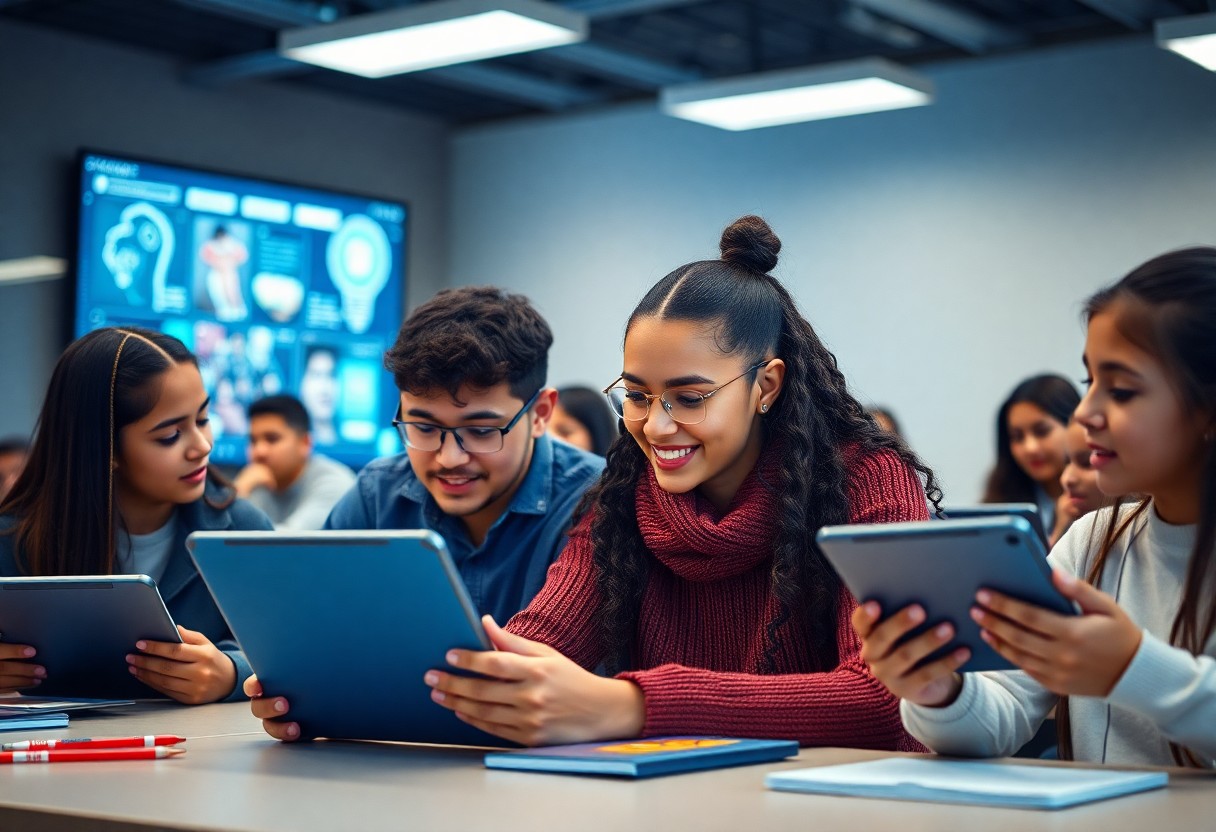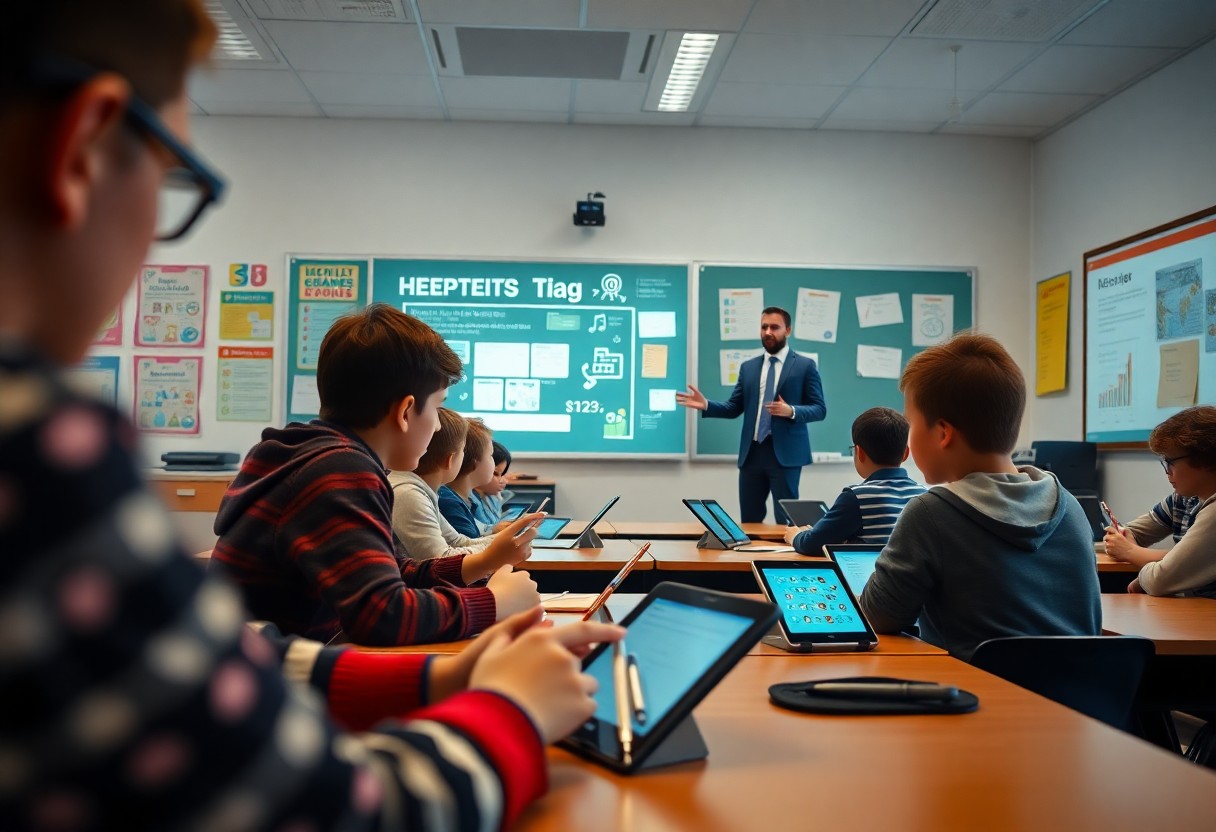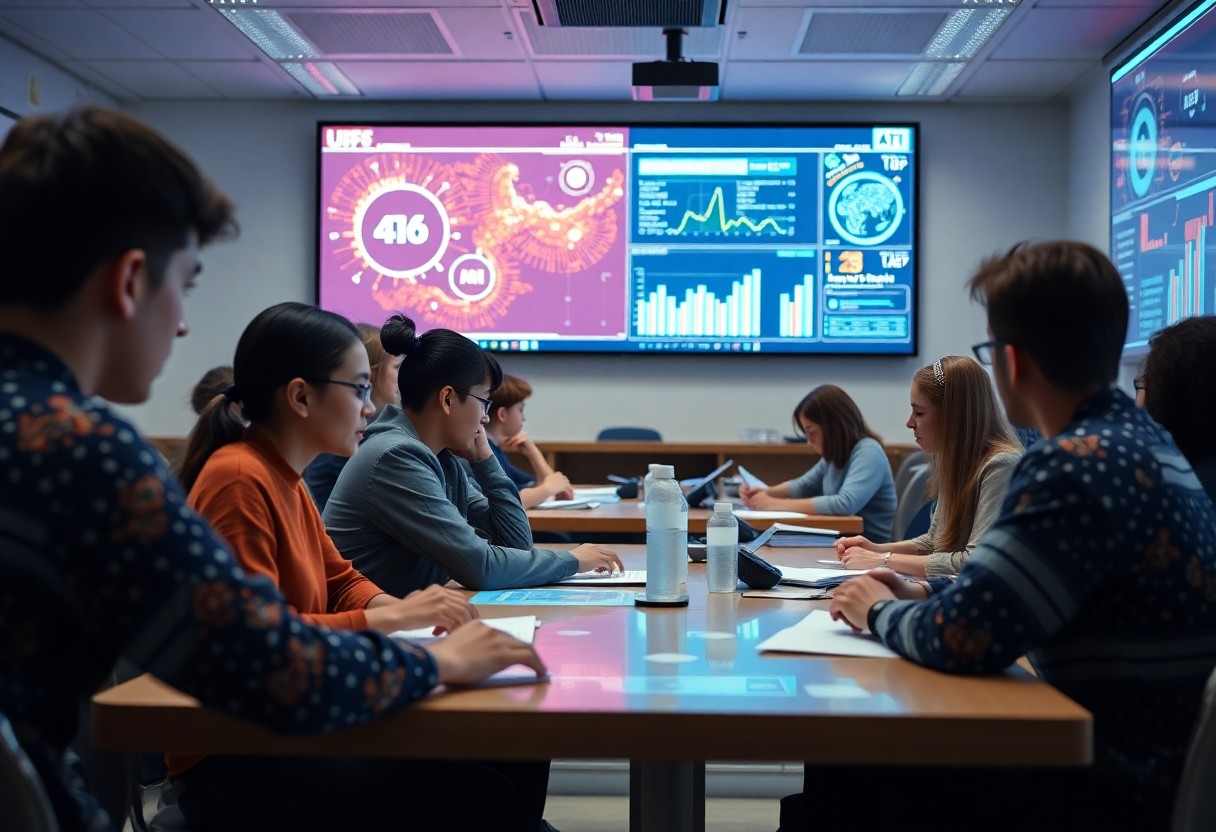Most educators today are grappling with the challenge of catering to diverse learning needs in a single classroom. Enter AI virtual tutors – a game-changer in personalized learning. These digital assistants have the potential to revolutionize the education system by providing individualized support, instant feedback, and adaptive learning experiences. By leveraging data analytics and machine learning algorithms, these tutors can tailor educational content to students’ unique learning styles and paces, creating a more engaging and effective learning environment.
The Current State of Personalized Learning
While personalized learning has gained traction in education, there are still limitations that traditional teaching methods pose.
Limitations of Traditional Teaching Methods
Traditional teaching methods often employ a one-size-fits-all approach, where educators deliver content to entire classrooms without considering individual learning styles or pacing. This can result in some students feeling either bored or left behind, ultimately hindering their academic growth and engagement. Furthermore, traditional teaching methods may not adequately address the diverse needs of students, including those with learning disabilities or English language learners.
The Need for Innovative Solutions
Innovative solutions are crucial to address the shortcomings of traditional teaching methods and enhance personalized learning experiences for students. AI virtual tutors can play a significant role in providing tailored guidance and support to students, adapting to their unique learning preferences and pace. By leveraging artificial intelligence, educators can better track student progress, identify areas of improvement, and offer personalized interventions to help students succeed.
With AI virtual tutors, the possibilities for personalized learning are endless, offering students real-time feedback and individualized learning pathways that cater to their specific needs. By embracing innovative solutions like AI virtual tutors, educators can revolutionize the way students learn and ultimately improve educational outcomes across the board.
The Rise of AI Virtual Tutors
Defining AI Virtual Tutors and Their Capabilities
Little did we know that the rise of AI virtual tutors would transform the landscape of education as we know it. These intelligent systems are designed to provide personalized learning experiences for students, catering to their individual needs and learning styles. AI virtual tutors can adapt to each student’s pace, abilities, and preferences, offering a customized learning path that fosters engagement and mastery of the subject matter.
Early Adoption and Success Stories
To date, early adopters of AI virtual tutors in education have reported remarkable success stories. Institutions leveraging these technologies have witnessed improvements in student performance, retention rates, and overall satisfaction. Teachers have noted that AI virtual tutors can effectively supplement their instruction, offering students additional support and guidance both inside and outside the classroom.
Any educational institution embracing AI virtual tutors can benefit from a more efficient and effective learning environment. With the ability to provide instant feedback, adapt content to individual learning styles, and offer round-the-clock support, AI virtual tutors have the potential to revolutionize personalized learning and democratize access to quality education for students around the world.
Capabilities of AI virtual tutors include their adaptability to students’ needs, ability to offer personalized learning experiences, and potential to enhance overall educational outcomes through individualized support and feedback.
Personalized Learning with AI Virtual Tutors
Adaptive Learning and Real-time Feedback
Even in traditional classroom settings, it can be challenging for educators to provide personalized attention to each student. However, AI virtual tutors have the potential to change this by offering adaptive learning experiences. These tutors can analyze a student’s performance in real-time, identify areas of strength and weakness, and tailor lessons accordingly. This real-time feedback enables students to receive immediate assistance and guidance, leading to more effective learning outcomes.
Catering to Diverse Learning Styles and Needs
Learning with AI virtual tutors opens up endless possibilities for catering to diverse learning styles and needs. Whether a student is a visual, auditory, or kinesthetic learner, these tutors can provide customized learning experiences to suit individual preferences. For example, a student struggling with a particular concept can receive additional explanations and examples, while a student who grasps the concept quickly can move on to more advanced material. AI virtual tutors ensure that each student receives the support they need to succeed.
With personalized learning experiences powered by AI virtual tutors, students can progress at their own pace, focus on areas where they need more help, and ultimately achieve better learning outcomes. By catering to diverse learning styles and needs, these tutors can create a more inclusive and effective educational environment where every student has the opportunity to thrive.
Enhancing Student Engagement
Not only do AI virtual tutors personalize learning, but they also have the power to enhance student engagement through various interactive features.
Gamification and Interactive Learning Experiences
Any effective AI virtual tutor incorporates gamification elements and interactive learning experiences to make learning more engaging and enjoyable for students. By integrating game-like features such as rewards, badges, and progress tracking, AI tutors can motivate students to stay on track and complete their tasks. Additionally, interactive simulations and quizzes help students apply their knowledge in a practical context, making learning more immersive and memorable.
Fostering a Sense of Community and Social Learning
An AI virtual tutor can foster a sense of community and social learning among students by connecting them with peers who are studying similar topics. Through virtual study groups, collaborative projects, and discussion forums, students can engage with each other, share insights, and learn from different perspectives. This collaborative environment not only enhances student engagement but also cultivates important teamwork and communication skills that are imperative for their academic and professional success.
Another way AI virtual tutors promote social learning is by providing real-time feedback and facilitating peer-to-peer mentoring. Students can receive instant feedback on their assignments and participate in peer review activities, creating a supportive learning community where they can learn from each other’s strengths and weaknesses.
By incorporating gamification elements, interactive learning experiences, and fostering a sense of community, AI virtual tutors revolutionize personalized learning by enhancing student engagement and creating a dynamic learning environment.

Intelligent Tutoring Systems and Human Teachers
For more effective personalized learning experiences, the collaboration and augmentation of human instruction with Intelligent Tutoring Systems (ITS) are crucial.
Collaboration and Augmentation of Human Instruction
To optimize student learning outcomes, merging the capabilities of AI virtual tutors with human teachers can create a powerful educational synergy. While AI tutors excel at providing personalized, adaptive feedback and content delivery based on individual student needs, human teachers bring a level of empathy, creativity, and real-time assessment that technology currently cannot fully replicate. By combining the strengths of both, students can benefit from a holistic approach to education that addresses their cognitive and emotional needs.
Redefining the Role of Teachers in AI-Driven Education
Systems now have the opportunity to redefine the role of teachers in the classroom through AI-driven education. By offloading certain tasks such as grading, content delivery, and even basic tutoring to AI systems, human teachers can focus on more qualitative aspects of education such as mentoring, critical thinking development, and fostering creativity in students. This shift can empower teachers to become facilitators of personalized learning journeys, guiding and supporting students in their educational growth rather than solely being responsible for imparting information. With AI handling routine tasks, teachers can spend more time engaging with students, identifying individual strengths and weaknesses, and providing targeted interventions to enhance learning outcomes.
Human teachers remain an indispensable component of the education system, bringing a level of emotional intelligence and interpersonal connection that technology cannot replicate. While AI tutors can provide personalized content delivery and feedback, human teachers can offer encouragement, motivation, and mentorship that is vital for student success. By leveraging the strengths of both AI systems and human educators, personalized learning can truly revolutionize education by catering to the unique needs of each student while fostering a supportive and enriching learning environment.
AI-Driven Assessment and Evaluation
All across the education landscape, AI virtual tutors are revolutionizing personalized learning through their advanced capabilities in assessment and evaluation. These AI systems have the potential to transform the way students are assessed and provide valuable insights into their learning progression.
Automated Grading and Feedback Systems
Evaluation: One of the key features of AI virtual tutors is their ability to offer automated grading and instant feedback to students. Traditional methods of grading assignments and exams can be time-consuming and subjective. With AI-powered systems, students receive immediate feedback on their work, helping them to understand their mistakes and areas for improvement. This instant feedback loop enhances the learning process and allows students to track their progress in real-time.
Identifying Knowledge Gaps and Learning Pathways
Learning: AI virtual tutors are adept at identifying knowledge gaps in students and creating personalized learning pathways to address these gaps. By analyzing student performance data, these systems can pinpoint areas where students are struggling and tailor learning experiences to address their unique needs. This personalized approach optimizes the learning journey and ensures that students receive the support and resources they need to succeed.
A deeper understanding of each student’s knowledge gaps allows the AI virtual tutor to create a customized learning pathway that focuses on reinforcing foundational concepts before moving on to more advanced topics. This adaptive learning process ensures that students master each concept before progressing further, leading to a more comprehensive and effective learning experience.
Addressing Concerns and Challenges
Once again, as with any technological advancement, the integration of AI virtual tutors in education comes with its own set of concerns and challenges. Two critical areas that need to be carefully considered are ensuring equity and accessibility in AI-driven education and mitigating bias and ethical considerations.
Ensuring Equity and Accessibility in AI-Driven Education
AIDriven personalization in education has the potential to exacerbate existing inequalities if not implemented thoughtfully. It is important to consider factors such as access to technology, internet connectivity, and digital literacy levels among students. Ensuring that AI virtual tutors are accessible to all students, regardless of their socioeconomic background, is crucial for creating an inclusive learning environment.
Mitigating Bias and Ethical Considerations
For AI to truly revolutionize personalized learning, mitigating bias and ethical considerations is of utmost importance. AI algorithms can inadvertently perpetuate biases present in the data used to train them, leading to discriminatory outcomes. It is necessary for developers to continuously monitor and address any biases in the AI virtual tutors to ensure fair and unbiased educational experiences for all students.
The ethical considerations surrounding the use of AI in education are vast and complex. Ensuring transparency in how AI algorithms make decisions and protecting student data privacy are crucial aspects that need to be carefully navigated to leverage the benefits of AI virtual tutors responsibly and ethically.
The Future of Work and Skills Development
Preparing Students for an AI-Driven Job Market
Unlike traditional classrooms, AI virtual tutors have the potential to prepare students for the rapidly evolving job market driven by artificial intelligence. An AI tutor can cater lessons to each student’s pace, adapt content to current industry trends, and provide real-time feedback on performance. This personalized approach equips students with the relevant skills and knowledge needed to thrive in a competitive, AI-driven workforce.
Fostering Essential Skills for the 21st Century
Skills such as critical thinking, problem-solving, creativity, and collaboration are crucial for success in the 21st-century job market. AI virtual tutors can play a pivotal role in fostering these crucial skills by challenging students with interactive exercises, encouraging innovative thinking, and promoting teamwork in virtual group activities.
Fostering these crucial skills not only prepares students for the demands of future jobs but also cultivates a well-rounded individual capable of adapting to various professional challenges and opportunities.
Implementation and Integration Strategies
Many educational institutions are exploring the implementation of AI virtual tutors to revolutionize personalized learning.
Phased Rollout and Piloting AI Virtual Tutors
can be an effective strategy to ensure a smooth transition. By gradually introducing AI tutors in selected classrooms or subjects, educators can assess their impact, gather feedback, and make necessary adjustments before scaling up.
Piloting AI virtual tutors allows schools to test the technology in real-world settings, identifying strengths and weaknesses. This approach enables educators to fine-tune the AI tutors to meet the specific needs of students and align with the curriculum.
Teacher Training and Support for AI-Driven Education
Tutors play a crucial role in the successful integration of AI virtual tutors in the classroom. Providing
comprehensive training and ongoing support
for teachers is imperative to help them leverage the technology effectively and maximize its benefits. Teachers need to understand how to use AI tutors as a tool to enhance learning outcomes and tailor instruction to individual student needs.
AI-driven education empowers teachers to focus more on personalized guidance and mentoring, while AI tutors handle routine tasks like grading and providing immediate feedback. By supporting teachers in mastering this new educational paradigm, schools can unlock the full potential of AI virtual tutors to revolutionize personalized learning.
Overcoming Technical and Infrastructure Challenges
Now, as AI virtual tutors continue to make their mark in personalized learning, educators and technology experts are faced with overcoming technical and infrastructure challenges to ensure the seamless integration and operation of these systems in educational settings.
Ensuring Scalability and Reliability of AI Systems
The scalability and reliability of AI systems are crucial for their successful implementation in educational environments. Scalability is crucial to accommodate varying numbers of users and learning demands, ensuring that the AI virtual tutors can handle increased workloads without compromising performance or quality. Additionally, reliability is paramount to maintain uninterrupted learning experiences for students and educators, fostering trust and confidence in these AI-driven tools.
Addressing Cybersecurity and Data Privacy Concerns
Ensuring cybersecurity and data privacy is a top priority when integrating AI virtual tutors into educational settings. Protecting sensitive student data from breaches and unauthorized access is imperative to maintain the integrity and trust of the personalized learning experience. Educators and technology specialists must collaborate to implement robust cybersecurity measures and privacy protocols to safeguard student information and uphold ethical standards in education.
Addressing cybersecurity and data privacy concerns requires a multi-faceted approach, including encryption techniques, secure networks, and stringent access controls to protect student data from potential threats and vulnerabilities. By prioritizing cybersecurity measures, educational institutions can cultivate a safe and secure learning environment where AI virtual tutors can thrive and enhance personalized learning opportunities for all students.
Evaluating the Efficacy of AI Virtual Tutors
Despite the promises of AI virtual tutors in revolutionizing personalized learning, it is crucial to evaluate their efficacy through rigorous research methodologies and metrics for success.
Research Methodologies and Metrics for Success
On the journey to assess the impact of AI virtual tutors, researchers must deploy a variety of methodologies such as randomized controlled trials, longitudinal studies, and comparative analyses. These approaches allow for a comprehensive understanding of how AI tutors influence student outcomes, engagement, and satisfaction. Metrics for success may include academic performance improvements, retention rates, student feedback, and teachers’ perception of the efficacy of AI virtual tutors. By employing robust research methodologies and defined success metrics, educators and developers can accurately measure the effectiveness of these AI tools.
Long-term Impact and Sustainability of AI-Driven Education
Longterm
As we investigate into the long-term impact and sustainability of AI-driven education, it becomes evident that the integration of AI virtual tutors is not merely a fleeting trend but a fundamental shift in the education landscape. A key consideration is the scalability and affordability of AI solutions to ensure widespread adoption across diverse educational settings. Additionally, the sustainability factor involves continuous updates and improvements based on feedback from users, advancements in AI technology, and evolving pedagogical practices. As technology evolves, the long-term impact of AI-driven education lies in its ability to adapt to changing needs, enhance personalized learning experiences, and equip students with imperative skills for the future.
In education, the long-term impact and sustainability of AI-driven solutions offer exciting possibilities for addressing individual learning needs, improving academic outcomes, and reshaping traditional teaching methods. By fostering a dynamic and adaptive learning environment, AI virtual tutors have the potential to empower students, support educators, and create a more inclusive and effective educational ecosystem.
Policy and Regulatory Frameworks
Encouraging Innovation and Investment in AI-Driven Education
Your education system must adapt to the digital age by creating policies that foster innovation and investment in AI-driven education. By incentivizing the development and implementation of AI virtual tutors in classrooms, you can revolutionize personalized learning experiences for students. Governments and educational institutions need to collaborate with tech companies to create a conducive environment for leveraging AI technologies effectively.
Ensuring Accountability and Quality Standards
To ensure the success of AI virtual tutors in education, regulatory frameworks must prioritize accountability and quality standards. It is crucial to establish protocols that monitor the performance and ethical conduct of AI systems used in learning environments. Additionally, setting benchmarks for educational outcomes and student engagement can help maintain high standards in AI-driven personalized learning.
The integration of AI in education necessitates a delicate balance between innovation and regulation. Regulatory bodies must work alongside educators and AI developers to create guidelines that emphasize the ethical and effective use of artificial intelligence in educational settings. By establishing clear policies and standards, society can maximize the benefits of AI virtual tutors while mitigating potential risks.
Global Perspectives and Collaborations
Cross-Cultural and International Applications of AI Virtual Tutors
Keep in mind that AI virtual tutors have the potential to transcend geographical boundaries and cater to learners from diverse cultural backgrounds. With the ability to customize learning experiences based on individual needs and preferences, these virtual tutors can adapt to the unique learning styles of students worldwide. The cross-cultural applications of AI virtual tutors not only enhance personalized learning but also promote global collaboration and understanding in the educational landscape.
Sharing Best Practices and Research Findings
One way AI virtual tutors can revolutionize personalized learning is through the sharing of best practices and research findings on a global scale. One of the most significant advantages of AI virtual tutors is their capacity to collect and analyze vast amounts of data to identify effective teaching methods and strategies. By sharing these insights and collaborating with educators worldwide, the field of personalized learning can advance rapidly, benefiting students and educators alike.
Tutors play a crucial role in not only providing personalized learning experiences but also in fostering a community of educators dedicated to improving educational outcomes through the use of AI technology. By sharing best practices and research findings, AI virtual tutors can continue to evolve and positively impact the future of education on a global scale.
1. Tailored learning experiences for individual students.
2. Instant feedback and progress tracking.
3. Adaptive to students’ pace and learning styles.
4. Enhanced student engagement and motivation.
5. Accessible 24/7 for flexible learning.
6. Scalable solution for personalized education worldwide.
Conclusion
Presently, AI virtual tutors have the potential to revolutionize personalized learning in education by offering students individualized support and feedback. These virtual tutors can adapt to each student’s learning pace and style, providing targeted assistance in areas where they may be struggling. By leveraging AI technology, educational institutions can enhance the learning experience for students, catering to their specific needs and helping them achieve their full potential.
As AI continues to advance, virtual tutors will play a crucial role in transforming traditional classroom settings into dynamic learning environments tailored to each student. By embracing AI virtual tutors, educators can provide a truly personalized learning experience that empowers students to excel academically and develop the skills they need to succeed in a rapidly changing world.
FAQ
Q: How can AI virtual tutors revolutionize personalized learning in education?
A: AI virtual tutors can revolutionize personalized learning in education by providing tailored learning experiences based on individual student needs and patterns.
Q: What are some benefits of using AI virtual tutors in education?
A: Some benefits of using AI virtual tutors in education include increased engagement, personalized feedback, and the ability to adapt to different learning styles.
Q: How do AI virtual tutors personalize learning for students?
A: AI virtual tutors personalize learning for students by analyzing data on their performance, identifying areas of weakness, and creating customized learning plans.
Q: Can AI virtual tutors replace human teachers in the classroom?
A: While AI virtual tutors can provide valuable support in the learning process, they are not meant to replace human teachers. They complement teachers by offering additional resources and support.
Q: Are there any challenges associated with using AI virtual tutors in education?
A: Some challenges associated with using AI virtual tutors in education include concerns about data privacy, the need for proper training for educators, and ensuring equitable access for all students.
Q: How can educators integrate AI virtual tutors into their teaching practices?
A: Educators can integrate AI virtual tutors into their teaching practices by familiarizing themselves with the technology, collaborating with AI experts, and incorporating virtual tutors as part of a comprehensive learning strategy.
Q: What does the future hold for AI virtual tutors in education?
A: The future of AI virtual tutors in education looks promising, with advancements in AI technology leading to more sophisticated and effective virtual tutoring systems that can further enhance personalized learning experiences for students.




